Almost three months after fighting first broke out in Sudan, nearly 3 million people have fled their homes, including more than 600,000 people who have sought safety in neighbouring countries.
So far over 150,000 people have crossed into South Sudan. Most are South Sudanese but this number does also include Sudanese refugees and people from other countries. Almost three-quarters of the people arriving into South Sudan come through the Joda border crossing in Upper Nile State.
Christian Aid recently travelled to the border of Sudan and South Sudan as well as to the Renk transit centre some 45 kilometres to the south to see firsthand the unfolding humanitarian crisis. In this blog, read about the challenges faced by those fleeing one crisis to another.
Image credits and information
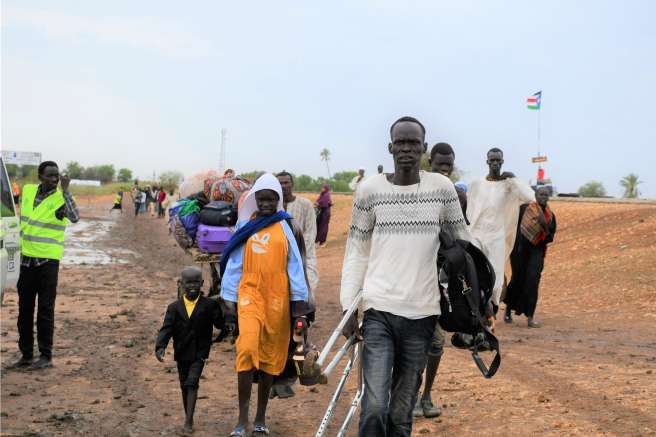
At the Joda border crossing
Image credits and information
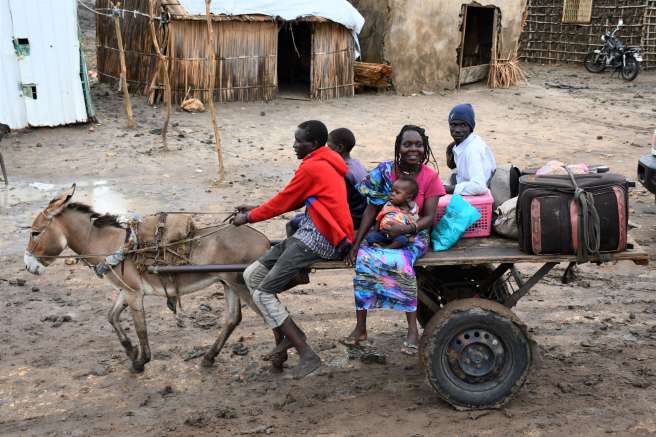
It wasn’t easy to get out. When you leave your house, you sometimes meet fighting and crossfire and you have to go and hide
Image credits and information
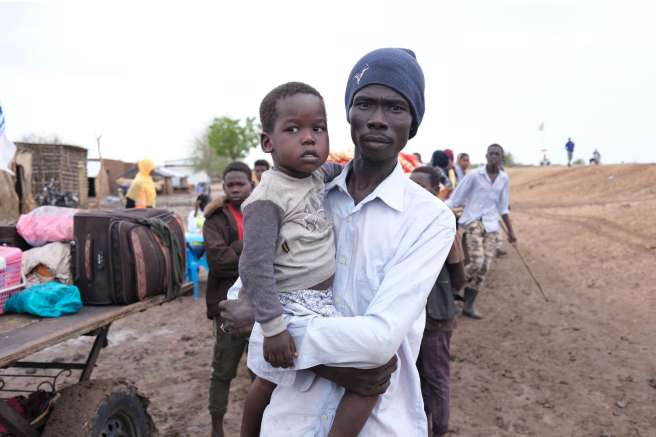
While Joseph says he is relieved to have made it to South Sudan, he remains deeply concerned for those who haven’t been able to make it out of Sudan, including his wife’s family who are still there.
“They plan to come but they haven’t got money yet for transport to get here.”
Joseph is hoping his family can help him get home to Warrap.
Refugees arriving at the South Sudan border
At Renk transit centre
Some 45 kilometres south of the border lies the town of Renk. The UN estimates that around 50,000 people are now staying in Renk across a number of different displacement sites. Christian Aid visited a transit centre which was set up within the walled grounds of a rundown building just on the outskirts of the town.
The transit centre is severely overcrowded. It is only meant to hold between 1 and 2,000 people for a short time - however, according to the UN, the number of people currently at the transit centre is nearly 4,700 and some have been there for weeks and even months.
Image credits and information
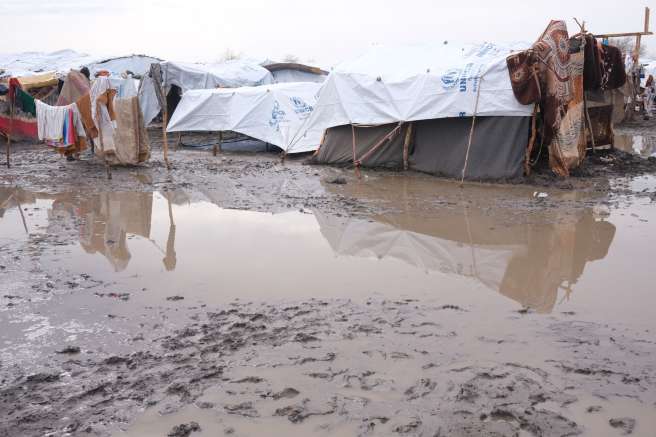
At the transit centre, Christian Aid met 40-year-old mum of ten Martha. Martha has lived in Khartoum her whole life. She had fled Sudan with her family, including her 65-year-old mother Grace, who is originally from Wau state in South Sudan.
Martha and her family felt they had no choice but to flee their home after their neighbourhood in Khartoum was attacked during the fighting.
“A bomb fell and part of it hit the top of my house. I was woken up by the noise and my body was covered in dust. All the windows and the door of my house were opened,” Martha says.
When I woke up, I went outside. One of my neighbours had been blown to pieces by a bomb. I knew then that I had to leave Khartoum.
Image credits and information
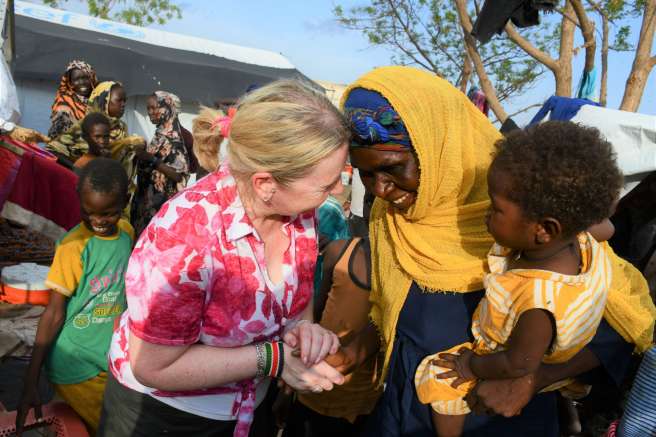
The second challenge is the poor hygiene. Children are dying every day from diarrhoea. This is because there is a lack of health facilities.
The conditions in the transit centre are particularly hard for Martha’s children.
“This has messed up their lives. They have been living in good conditions where they have been watching TV and playing computer games. Now they are really exhausted with the situation we are in,” Martha says.
“If it wasn’t for their aunt arriving and telling them that the situation in Khartoum is getting worse and worse, they would have forced me to take them back.”
Image credits and information
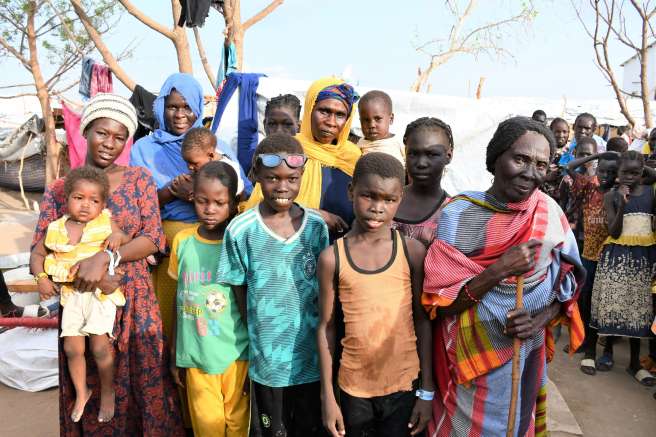
This is not a life I expected to live, this life was forced on me. I wish this life that I am living will never repeat itself for another person because nobody should endure such a life. It is my wish that I could be the first and the last person to live the life that I am living in now.
Arrivals facing tough conditions at the Renk transit centre



